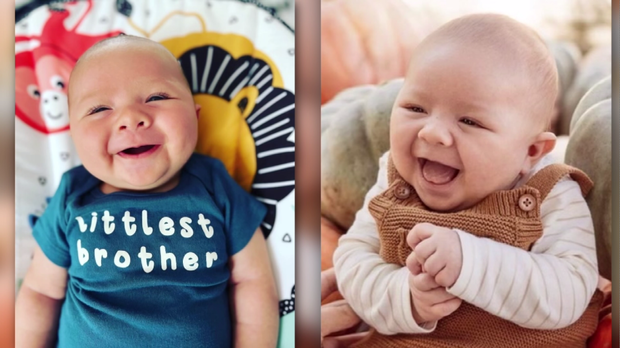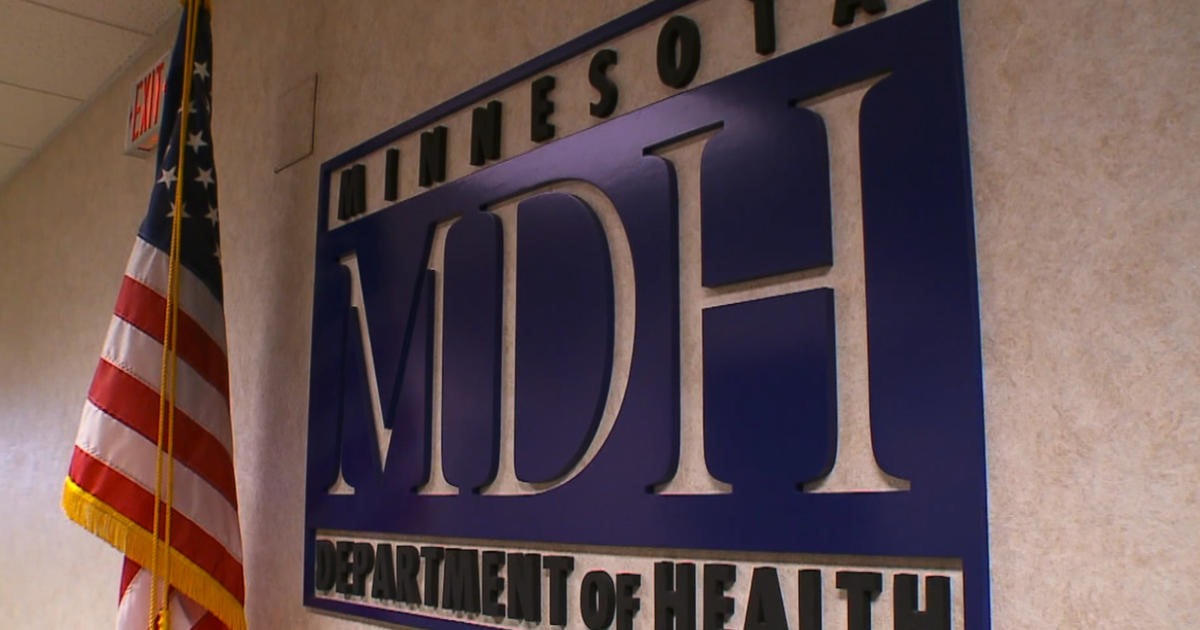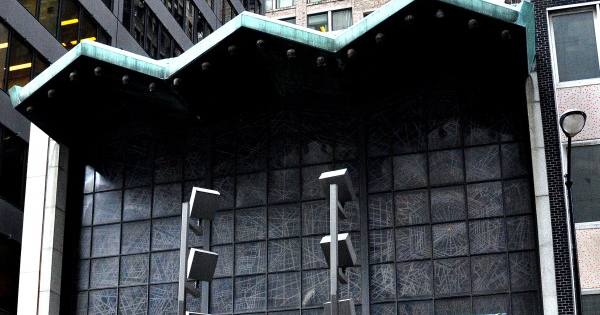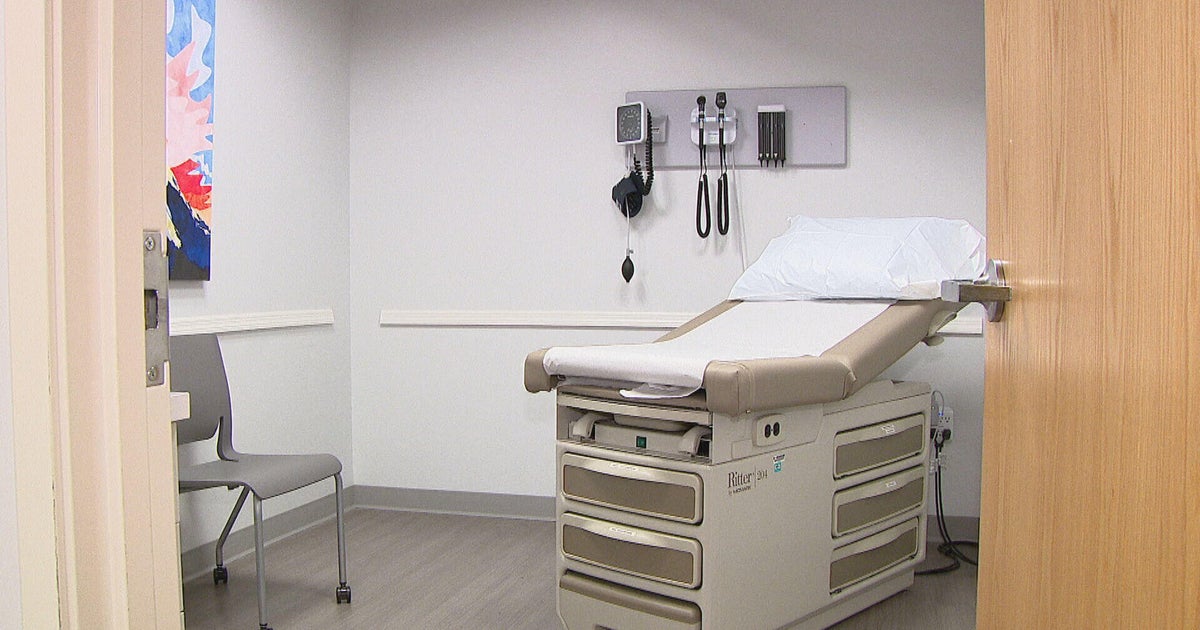Health officials issue urgent warning as Chicago hospitals see spike in RSV infections in kids
CHICAGO (CBS) -- Pediatric ICU beds are at critical levels across Illinois because of increasing RSV infections in children.
CBS 2's Tara Molina reported gathered the latest data from health departments at the city, state, and county levels – and talked to families experiencing the spike in the respiratory illness firsthand.
Kaelyn Bogucki's infant son, Benny, was hospitalized with RSV, or respiratory syncytial virus. She knew something was wrong when the typically-smiley 2-month-old was not acting like himself.
"It started getting really scary when we started noticing labored breathing, the wheezing, abdominal retractions," Bogucki said.
She soon learned Benny had RSV.
"It was my toddler who brought the cold home, and the virus. So she brought RSV home," Bogucki said. "It just didn't hit her as hard because she had like this immunity built up."
Benny was hospitalized for five days after being life-flighted to the University of Chicago's Comer Children's Hospital. He has been home for a few weeks now.
"It is so sad and so scary to see your kid struggling on oxygen," Bogucki said. "No one wants that for their kid."
Both Benny and his sister are okay now. But Bogucki says she feels for all of the other parents going through what she has – with RSV spiking across the state.
"It's real. It's so real," Bogucki said. "So many of us parents, we've heard about RSV in passing in previous years. It doesn't seem like until this season it's hitting harder for all of our kids."
Pediatric ICU beds hitting a critical low this week - at only 6 percent availability across the state because of the surge in RSV. A spokesperson for the Illinois Department of Public Health said availability under 25 percent is a cause for concern.
An IDPH said representative said they first flagged the issue for hospitals to be aware back at the beginning of September, as kids were returning to school.
The IDPH issued another alert about with guidance to health care partners this week. The alert warned that the elevated emergency room visits and hospitalizations due to RSV and other respiratory infections are creating a health care system crisis involving an acute shortage in pediatric ICU beds.
IDPH Health Alert on PICU Beds by Adam Harrington on Scribd
There is also a crisis specifically within the city of Chicago.
"We have seen the highest levels of ED visits for children with RSV since the pandemic, and higher than the season immediately prior to the pandemic – so these are pretty high numbers," said Dr. Jennifer Seo, Chief Medical Officer for the Chicago Department of Public Health.
RSV symptoms are similar to a cold, but doctors said parents should watch for signs of respiratory stress, if their child's nostrils are flaring while breathing, or if their skin is pulling towards their ribs. Seo also had some advice on preventing transmission.
"RSV can stay on surfaces for hours," she said, "and so that good hand washing guidance that we've always been given – especially for young children. Making sure everyone is washing their hands well."
The concerns were echoed by Dr. Julie Holland, head of general pediatrics for Advocate and NorthShore University Health System.
"We are seeing a huge surge of RSV right now. We usually see RSV in the winter - and that's probably because COVID has thrown the timing off a bit," Holland said. "In addition, we are seeing a larger surge than normal, because there are kids that haven't had RSV the past couple years, so their immunity is down."
Holland said there are numerous kids coming into PICUs lately with RSV.
"We really want to save our emergency room visits for those kids that are sicker – maybe that have labored breathing or high fevers or a high risk for progressing or having severe disease," she said.
Holland noted that the younger children are, the more severe RSV can be. She also emphasized that other respiratory infections are going around and prevention is key.
"What we don't want is kids getting COVID and Flu and RSV all at the same time, so whatever you can do to prevent illness, do it," Holland said.
Illinois Department of Public Health Director Dr. Sameer Vohra last week also emphasized the importance of getting children vaccinated against COVID-19 – given the prevalence also of RSV, influenza, and other respiratory viruses. The Centers for Disease Control and Prevention last week endorsed the bivalent COVID-19 booster shot for children 5 and older.
"I was pleased to see the CDC expand updated COVID-19 vaccines to include children aged 5 to 11 years old," Director Vohra said in a news release on Friday, Oct. 14. "This expansion comes at a critical time in Illinois and across the country, as we are seeing a sharp increase in severe childhood respiratory infections resulting in a shortage of available pediatric hospital beds. The updated bivalent COVID-19 booster, along with the flu vaccine, give parents two powerful tools to protect their children from severe illness and hospitalization. With a surge in childhood respiratory illnesses already occurring, and the possibility of diseases like COVID-19 and the flu rising later this fall and winter, now is the best time to get these safe, effective vaccinations."
Lurie Children's Hospital spokeswoman Julianne Bardele said in a statement that the hospital is seeing a surge in both RSV and enterovirus infections. The enterovirus D68 strain – first identified in California in 1962 – can cause respiratory illness that can be mild like the common cold, but can also be severe, according to the CDC:
"We are currently experiencing a significant increase in enterovirus infections, presumably by the enterovirus D68 strain that is associated with worse respiratory illness in kids. Our positivity rate for enterovirus has ranged 28-40% over the past 4 weeks. We are also currently experiencing a significant and early surge in RSV, which can cause worse respiratory illness in infants and children with existing medical problems such as immunocompromise, heart disease, or lung disease. Our RSV positivity rate spiked to 35-40% over the past several weeks. COVID-19 cases have declined significantly. While we have not yet seen increases in influenza, we are very concerned about this year's upcoming flu season. We expect influenza to return to pre-pandemic levels. This is particularly concerning because nearly the entire population of children under 2-3 years old have not yet been exposed to influenza because of the near absence of flu since 2020, and we encourage all families to stay up to date on their yearly flu shot for themselves and their children."
Last week, U of C Comer Children's Hospital Pediatric Quality Chief Dr. Allison Bartlett, Physician-in-Chief and Pediatrics Department Chairman Dr. John Cunningham, and Women's, Children's and Emergency Services Vice President Jeff Murphy issued a warning to all UChicago Medicine and Biological Sciences Division faculty and staff about a potential pediatric capacity crisis:
"Like pediatric hospitals across the country, region and city, UChicago Medicine Comer Children's Hospital is experiencing high demand for inpatient services due to an early and aggressive respiratory virus season. Combined with the closure of a number of pediatric hospital beds in our region, Comer Children's has been operating at 100% inpatient capacity for 33 consecutive days.
"We know everyone at Comer Children's has been impacted by this surge, and we deeply appreciate the commitment, care and collaboration our teams have shown as we care for the children entrusted to us. In particular, we want to thank our Patient Care Support, Bed Access and Transfer Center nurses, along with the UCAN team, for helping us place as many patients as possible in our hospital."
The Comer memo reported a 40 percent test positivity rate for RSV cases in its pediatric patients as of Friday of last week. It called the figure "an alarmingly high statistic for a virus that seasonally circulates between November and March."
Comer is also experiencing a more than 75-percent increase in transfer requests from overwhelmed community hospitals facing similar challenges. This has forced the hospital to begin reviewing transfer requests and surgical schedules, set up surge space, and open its neonatal intensive care unit for some babies with RSV. The adult side of the UChicago Medicine is also taking older pediatric patients to maintain room at Comer, the memo said.
"Comer Children's is an essential resource for the South Side and broader Chicagoland area and one of the only hospitals in the state to provide highly specialized medical care to critically ill and injured children," the memo said. "With limited pediatric hospital beds available in Illinois and Indiana, we must do everything to stretch our finite resources so we can provide high-quality care for as many children as possible."
Meanwhile for her part, Bogucki is scaling back activity involving her kids in the wake of Benny's terrifying infection. She said she is keeping her children "out of the public during sick season."
"Anything unnecessary, I'm not taking my kids to – so we're not doing our Target runs like we used to," she said. "I'm doing target pickup."
Bogucki also has a message for parents here in Chicago and across the state.
"Every parent should just be hyper aware this is a very real virus that's hitting harder this year," she said.








